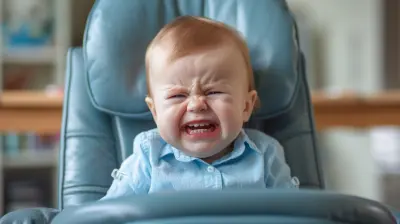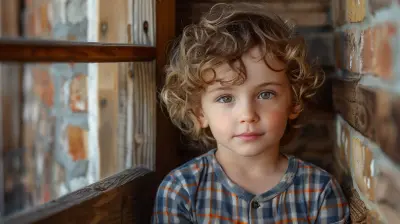The Secret to Teaching Kids Accountability
23 October 2025
Ever feel like you're stuck on repeat with your kids? You know, saying the same reminders over and over again: "Pick up your toys," "Did you do your homework?" or the infamous, "Whose dirty socks are these?" Yep, welcome to the parenting loop. But here's the question every parent secretly asks themselves—how do I teach my child to be responsible without turning into a broken record?
Well, you’re not alone. And here's the good part: there is a way to help kids grow into responsible and accountable little humans. It's not rocket science, but it does require consistency, patience, and a sprinkle of strategy.
In this article, we’re going to dive deep into the world of accountability—what it is, why it matters, and how to make it stick for kids of all ages.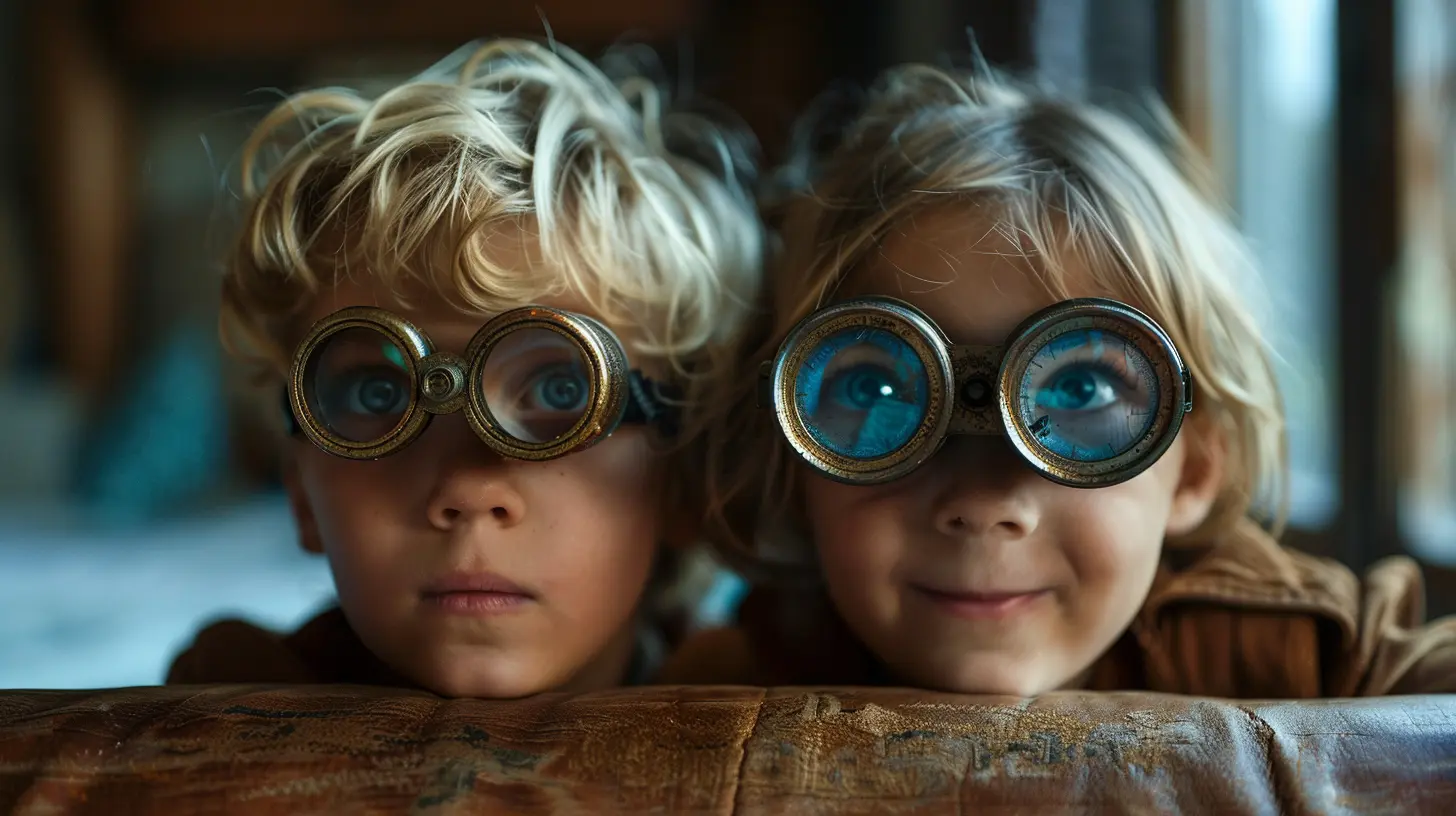
What Is Accountability, Anyway?
Let’s clear this up first. Accountability isn’t just about admitting you did something wrong. It’s about taking ownership of your actions, your choices, and the outcomes that come with them—good or bad. It includes saying, “Yep, that was me,” whether it’s for something amazing or a total mess-up.For kids, accountability looks like:
- Finishing homework without being chased.
- Owning up to breaking the vase (even when they really, really want to blame the dog).
- Remembering their chores—or at least trying to.
- Saying “I’m sorry” and actually meaning it.
It’s a skill—and like all skills, it takes time, repetition, and a safe space to learn.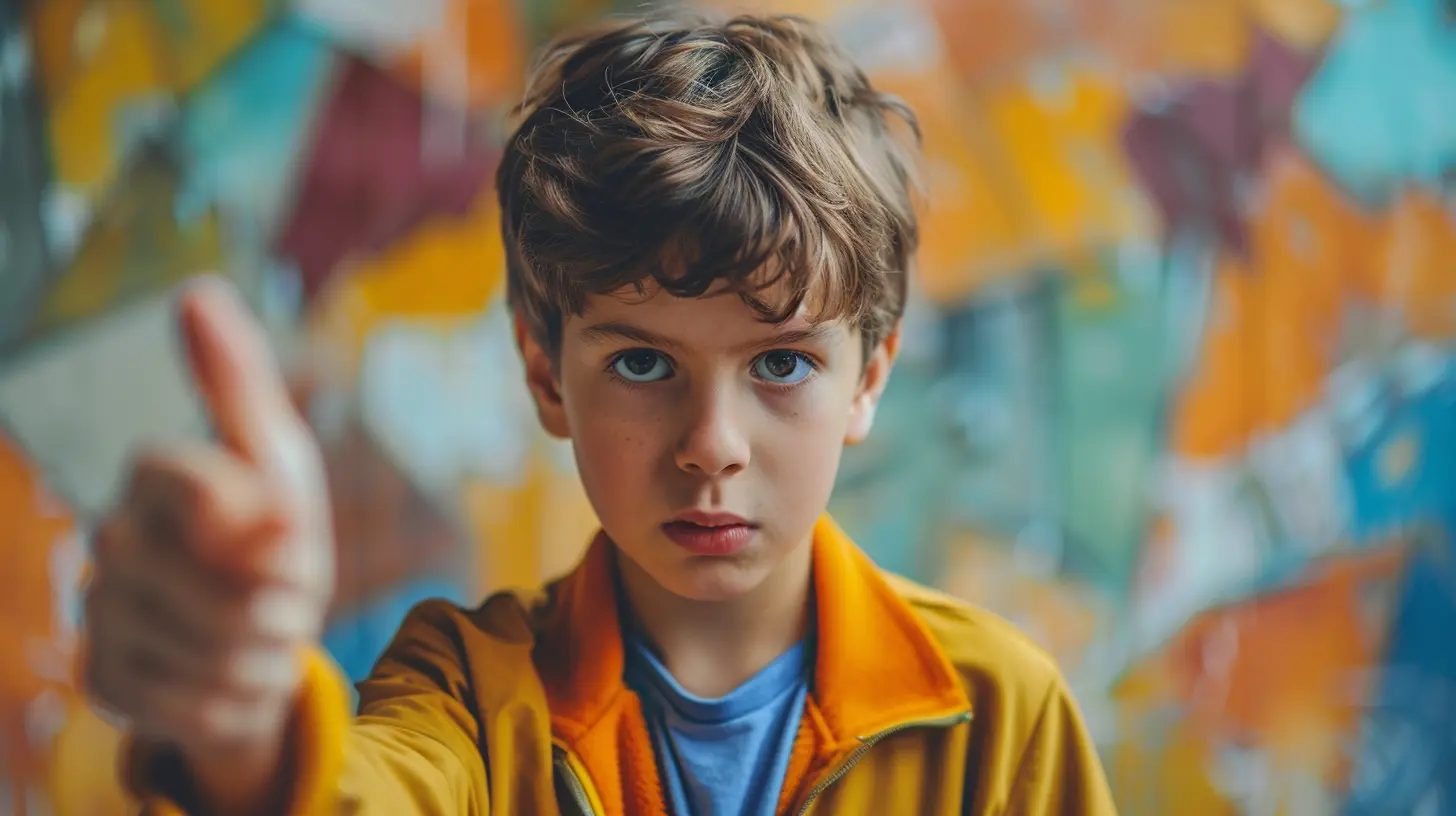
Why Accountability Matters (Even When They’re Still in Pajamas at Noon)
You might be wondering: “Does this really matter now?” The short answer—absolutely. Teaching kids accountability early on sets them up for life. Imagine a world full of adults who follow through, own their mistakes, and don’t look for someone else to blame. Sounds dreamy, right?Here’s what accountability builds in your child:
- Confidence: Owning up shows courage.
- Trustworthiness: People depend on those who take responsibility.
- Self-awareness: Kids start to see how their actions affect others.
- Problem-solving: They’ll stop passing the blame and start seeking solutions.
So yeah, this stuff matters. A lot.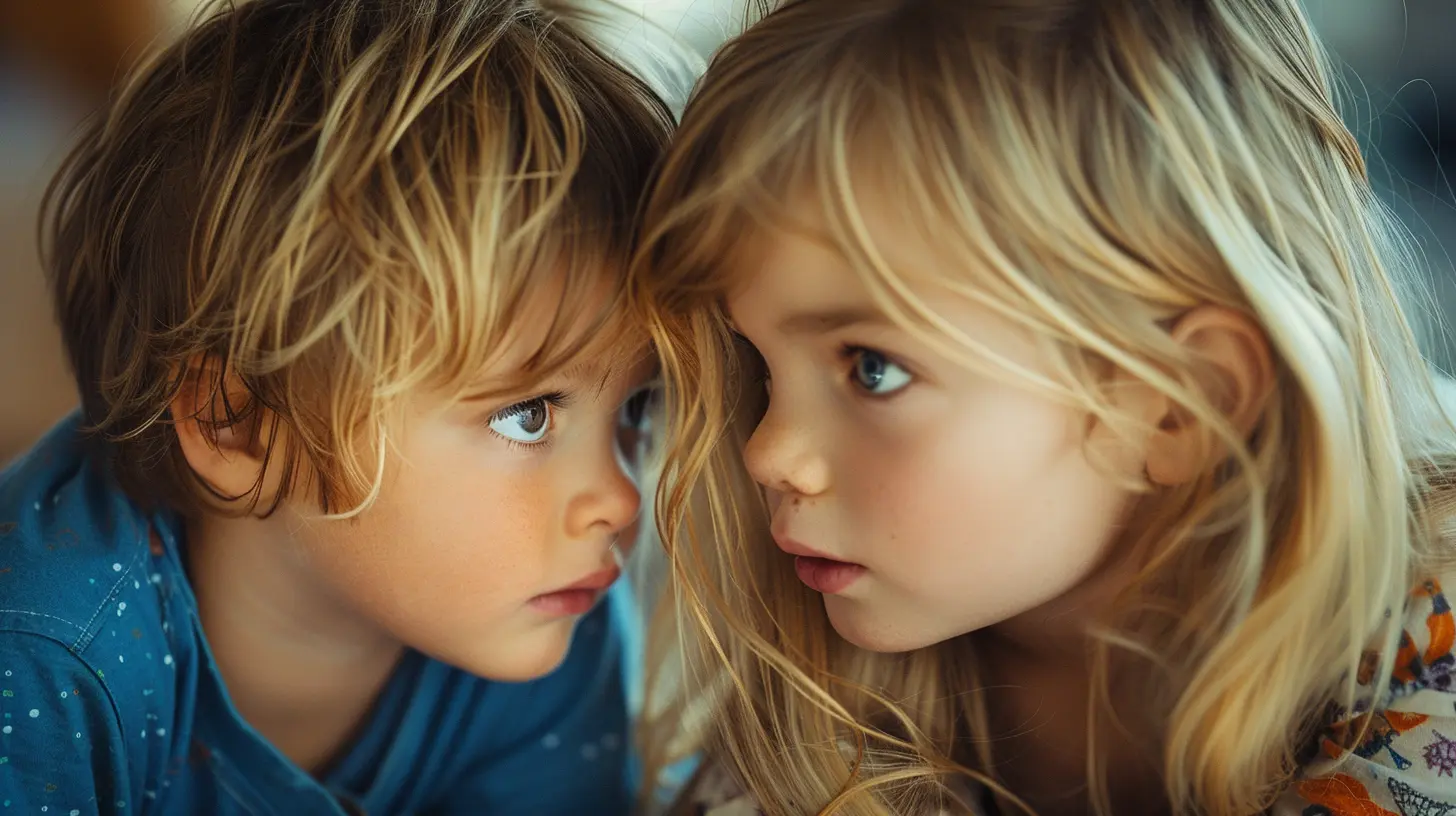
The Real Secret: It Starts with YOU
Sorry to break it to you, but kids don’t just absorb accountability through osmosis or wishful thinking. They learn it from the environment around them—especially from you. That’s the real secret. You’re the blueprint.If you say, "I'll be there in five minutes," but show up 20 minutes later… your kids notice. If you forget promises or find ways to shrug off your own mistakes, they pick up on that too. It’s all being logged in their little mental notebooks.
Walk the Talk
Model accountability in everyday moments:- Admit when you mess up. (“I totally spaced on your practice today. That was my bad.”)
- Keep your promises—even the small ones.
- Use “I” statements. ("I forgot, and I’ll fix it,” instead of “Well, you didn’t remind me!”)
Kids are watching, absorbing, and mirroring more than they’ll ever admit. Be the example.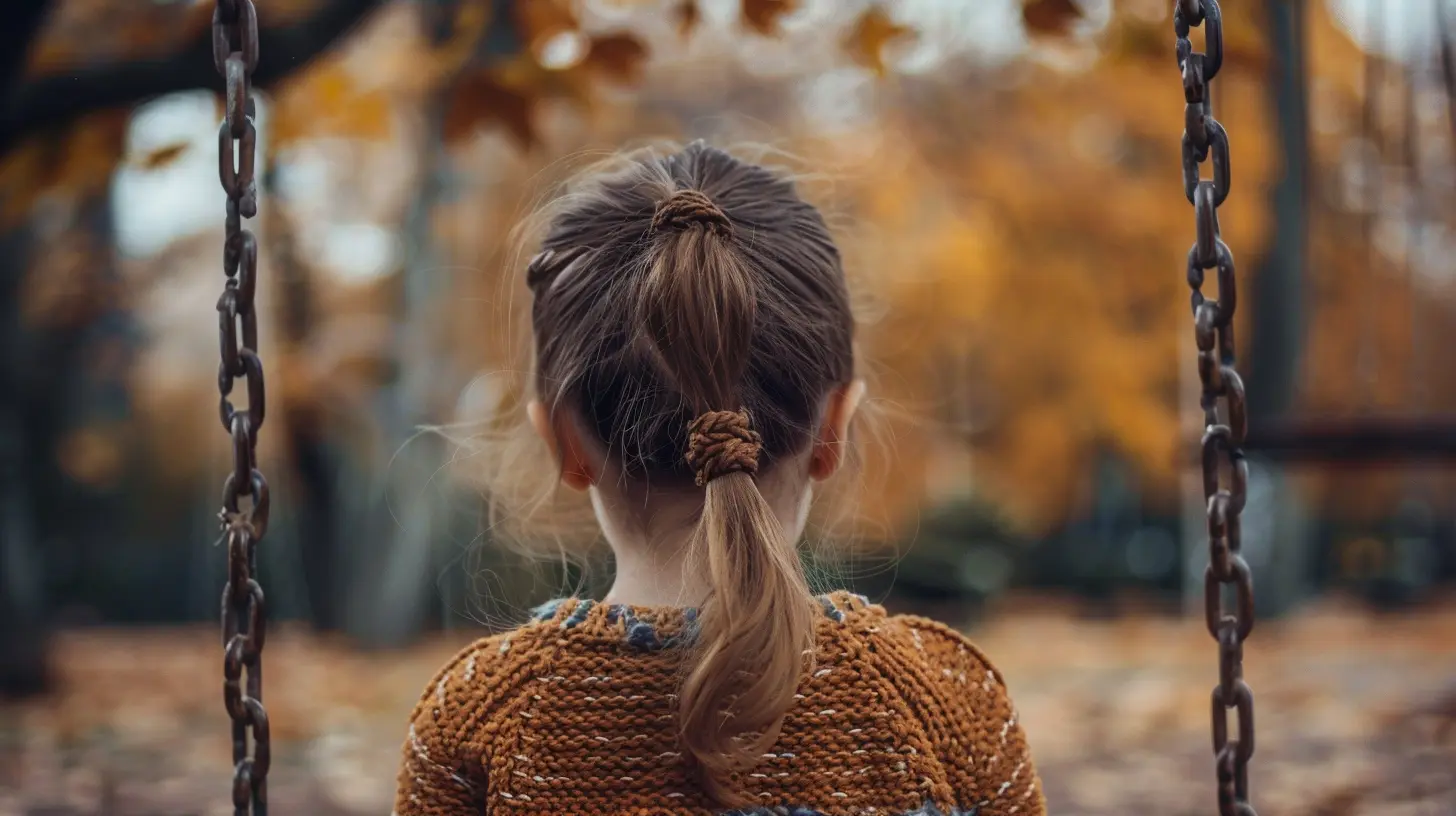
Making Accountability Age-Appropriate
Accountability doesn’t look the same for a 4-year-old as it does for a 14-year-old. You’ve gotta meet them where they are.Preschoolers (Ages 3–5)
At this age, kids are still learning right from wrong, so keep it simple.- Focus on routines: “Put your cup in the sink after lunch.”
- Use visuals: Charts, stickers, or pictures help them track progress.
- Celebrate small wins: “You remembered your shoes today—high five!”
Elementary Age (6–10)
Now they’re learning cause and effect. This is your golden window.- Set clear expectations: “Your job is to feed the dog every morning.”
- Let natural consequences happen: If they forgot lunch, they’ll be hungry.
- Talk about feelings: “How did it feel when your teammate missed practice without telling you?”
Tweens and Teens (11–18)
This age group craves independence—perfect for flexing those accountability muscles.- Shift the responsibility: “What do you need from me to manage your schedule?”
- Encourage self-reflection: “What would you do differently next time?”
- Hold them to their word: If they agreed to something, follow up.
Tools That Actually Help (No Magic Wand Required)
Teaching accountability doesn’t require a PhD or a Pinterest-perfect routine. It just takes the right tools—and a little consistency.1. Chore Charts and Checklists
Old school? Maybe. Effective? Absolutely.Checklists give kids visual proof of their responsibilities. Whether it’s brushing teeth, feeding pets, or finishing homework, there's something satisfying about checking a box. (Hey, adults love it too!)
2. “Oops, Try Again” Moments
Mistakes happen. A lot. Instead of scolding, use slip-ups as learning opportunities.Try this: “I noticed you didn’t finish your homework. Let’s figure out what happened and make a plan for next time.”
Accountability isn’t about perfection—it’s about growth. And kids need the space to grow.
3. Consequences That Match the Behavior
Forget the threats and punishments that don’t make sense (“You didn’t clean your room? No TV ever again!”). Logical consequences are where it’s at.Examples:
- Don’t do laundry? You don’t have clean clothes.
- Leave your bike in the yard? It gets locked up for the day.
The consequence should always be connected, fair, and consistent.
Praise the Process, Not Just the Result
Ever notice how kids light up when they get praised? It’s like sunshine to their souls. But instead of only celebrating outcomes (“Good job on the A+!”), let’s cheer for effort and growth.Try saying:
- “I noticed you took responsibility for that—well done.”
- “You didn’t blame your brother this time. That takes guts.”
- “You remembered your chores without me reminding you. That’s progress!”
This kind of feedback builds intrinsic motivation—the idea that doing things right feels good, even if nobody’s clapping.
Let Natural Consequences Do the Teaching
It’s so tempting to jump in and shield our kids from every mistake. But sometimes? The best lessons come from falling flat.Letting natural consequences happen (safely, of course) teaches kids accountability in a way no lecture ever will.
Forgot homework? Let the teacher handle it. Didn't set an alarm? Let them rush to school (once or twice, anyway).
The goal isn't to punish—it’s to guide. Just like learning to ride a bike, they’ll wobble and fall. But eventually, they get the hang of it.
Use Stories, Not Lectures
Raise your hand if your child has ever said, “Ugh, not another talk!”Instead of dishing out long-winded lectures, try storytelling. Share your own childhood mishaps—or even bedtime books with lessons about responsibility.
Kids relate better to stories. They see themselves in the characters and absorb the message without realizing they're being “taught.”
Try this: “When I was your age, I forgot to bring my science project to school. I was so embarrassed, but I learned to prep the night before.”
Real, honest stories stick.
Accountability Boosts Relationships
Here’s something we don’t talk about enough: accountability isn’t just about chores and homework. It’s also about how we treat people.When kids learn to take responsibility for their actions, they become better siblings, friends, and eventually, partners and coworkers. They learn to say:
- “I’m sorry I hurt your feelings.”
- “I forgot to share like I said I would.”
- “That was wrong of me, and I’ll do better.”
These moments build stronger, more empathetic relationships—and honestly, the world could use more of that.
What If They Resist?
Ah yes, the classic eye roll, the arms crossed, the silent treatment. Resistance comes with the territory. But don’t give up.Here’s what helps:
- Stay calm and consistent. Freaking out fuels the fire.
- Involve them in the process: Let them have a say in rules or consequences.
- Avoid shaming language: "You're so lazy" becomes "I’ve noticed you’re struggling to finish your tasks—can we talk?"
Remember: accountability isn’t a one-and-done lesson. It’s like building muscle. It gets stronger with use.
Final Thoughts: It’s a Journey, Not a Checklist
Teaching kids accountability isn’t about raising perfect kids—it’s about raising aware, responsible humans who make mistakes, learn from them, and grow. That journey takes time, practice, and a whole lot of grace.And guess what? You’re already doing better than you think. Every time you show up, guide them, model responsibility, and give them the space to try—it counts.
So the next time you're knee-deep in laundry and noticing your child left their lunch on the counter again, take a deep breath. This is just one moment in a long journey. And you’re not alone.
You’ve got this.
all images in this post were generated using AI tools
Category:
Parenting TipsAuthor:

Kelly Snow
Discussion
rate this article
1 comments
Rosalind Wagner
This article highlights practical strategies for fostering accountability in children. Encouraging responsibility through positive reinforcement and clear expectations truly empowers kids to make better choices. Great insights!
October 29, 2025 at 5:58 PM

Kelly Snow
Thank you for your thoughtful feedback! I'm glad you found the strategies helpful in fostering accountability in children.
